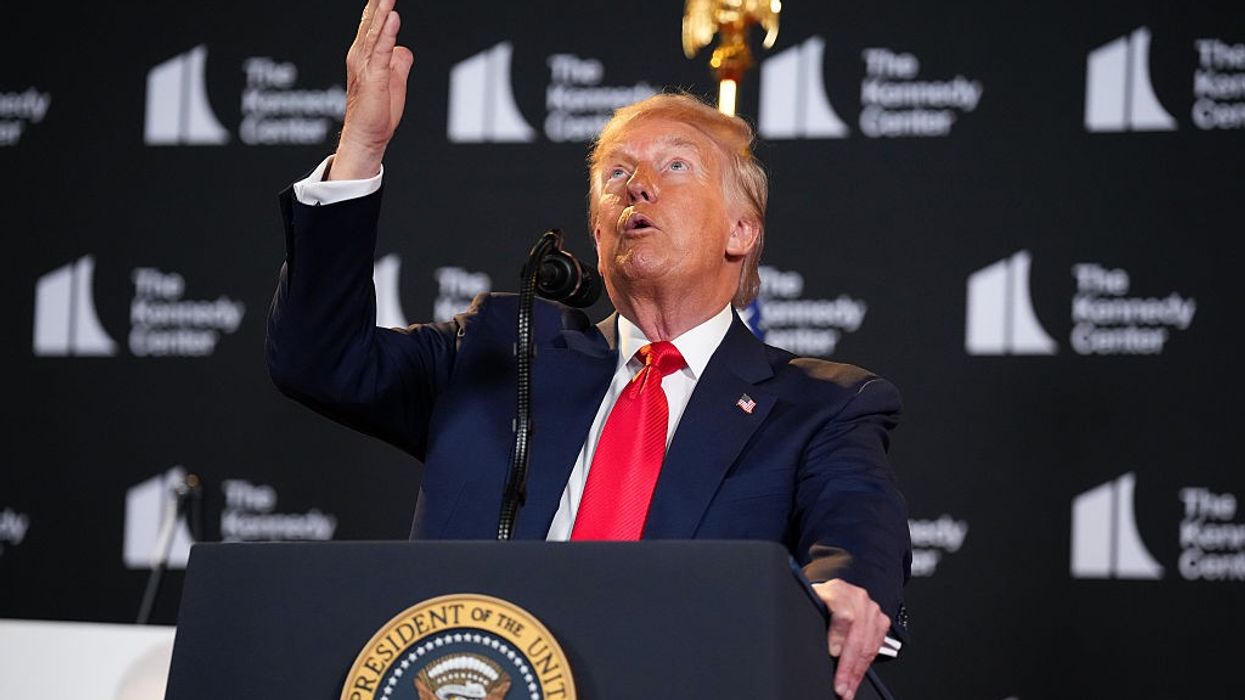Catherine Connolly's Win in Ireland Proves Good Things Can Still Happen
In a world of strongmen, a voice for peace and a beacon of hope shines through.
On November 11 2025, independent Member of Parliament Catherine Connolly will become the new president of Ireland after winning an overwhelming victory over the fiercely unpopular Heather Humphreys.
In her acceptance speech, President Connolly vowed to remain rooted in service, stay humble, and actively practice neutrality. She is anti-war, anti-imperialist, pro-reunification, an advocate for disability rights, and fluent in Irish. She has also been openly critical of the European Union's inaction on Gaza, and is distrustful of France and the United Kingdom due to their massive armament programs.
In her words, Connolly strives to be "a moral compass in a world increasingly driven by profit and spectacle. A voice for those too often silenced."
Who is Connolly?—The Politician Not Afraid to Stand Against the Consensus
As a former barrister, from a humble background, Connolly has spent her years volunteering with the elderly and taking night classes to train in law. She formally entered politics in 1999 with the mission of tackling Ireland's dire housing shortage crisis.
After serving 17 years as a councillor in Galway for the Labour Party, she left, citing a lack of support, and began her journey as an independent. In 2020, she became the first woman elected to chair debates as deputy speaker in the Dáil Éireann.
Rather than pandering to corporate interests, the wealthy elite, or a personal ego trip bent on abusing power (naming no names), Connolly offers a hopeful vision for a more compassionate and responsible approach to politics.
Connolly's victory marked an important moment for independent candidates around the world. As the world slides to the right, her humble message of peace, inclusivity, and democracy is a powerful reminder that there is light. We must continue to draw attention to and support those who stand up against the establishment.
Connolly has shown that it is possible for well-deserving underdogs such as Zohran Mamdani, Jeremy Corbyn, Zack Polanski, and Bernie Sanders to bring common-good policies into the mainstream.
2025 Irish Presidential Election—Game-Changing for this Divided Nation
In a demonstration of her ability to unify opposing voices, Connolly's landslide win came after she secured the support of opposition parties Sinn Féin, the Social Democrats, People Before Profit, and even her former party, Labour.
As an independent, Connolly pledged, in her opening speech, to be a '"president for all." Her victory was secured after gaining the largest number of first-preference votes ever—the equivalent of 63%.
When we look at the bigger picture, however, it tells the story of a divided, disillusioned, and apathetic Ireland tired of the two-party system. Voter turnout was just 45.8%, and a huge 213,738 votes were either invalid or spoiled. This accounted for almost 13% of the overall vote, notably, more than 10 times the number in the last presidential election.
In the run-up to the election, violent riots broke out in the capital for two consecutive days. They took place in front of a hotel housing asylum seekers in an anti-immigration sentiment being witnessed across large parts of Europe. This is just one example of the ongoing immigration tensions in Ireland.
Irish citizens are frustrated with the government after years of austerity measures, the ongoing housing crisis, poor public services such as healthcare, and the fact that key candidates, such as Maria Steen, were not on the ballot.
Connolly's Policies—A Progressive Ireland Led by a Moral Compass
With Connolly's left-wing, progressive, and anti-war stance at the reins, the world eagerly awaits to see if Ireland can be the guiding light that so many nations need right now. In the face of fascist, authoritarian leaders such as Donald Trump, Viktor Orbán, Xi Jinping, Vladimir Putin, Benjamin Netanyahu, and Nicolás Maduro, we desperately need a new playbook.
Some of Connolly's stances include:
- Strong advocacy for Irish reunification through a peaceful and democratic process;
- The legalization of same-sex marriage. She stands for equality for all individuals, regardless of their sexual orientation;
- Providing access to safe and legal abortion services. She advocates for reproductive rights and a woman's right to choose;
- A compassionate and humane approach to immigration;
- A universal healthcare system that is accessible to everyone;
- Addressing the housing issue and getting people experiencing homelessness off the streets;
- The promotion and preservation of the Irish language by encouraging its integration into education and public life;
- Comprehensive and urgent climate action to reduce carbon emissions, promote renewable alternatives, and support conservation efforts;
- Implementing a wealth tax to address economic inequalities and fund public services;
- Enhancing democratic processes to ensure transparency, accountability, and increased public participation;
- Promoting peace through diplomatic means and maintaining neutrality. She is critical of NATO and other military alliances; and
- Vocal advocacy for peace in Gaza, ending the blockade, and promoting humanitarian efforts to end the suffering of the Palestinian people. She supports a more ethical approach to international arms sales and highlights the complicity of those weapons which are used to commit war crimes, genocide, and create long-lasting human suffering.
With her pledge to be accountable to the citizens of Ireland, her policies are people-and-planet focused. Her commitment to justice, equality, and transparency is a refreshing change from the status quo. Rather than pandering to corporate interests, the wealthy elite, or a personal ego trip bent on abusing power (naming no names), Connolly offers a hopeful vision for a more compassionate and responsible approach to politics.
Let's hope that her recent win bolsters the campaigns of other progressive candidates and serves as a reminder that positive change is possible. This is a huge win for the left; let's keep the momentum going.
In the words of Catherine Connolly: "Use your voice in every way you can, because a republic and a democracy need constructive questioning, and together we can shape a new republic that values everybody."


